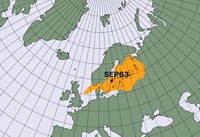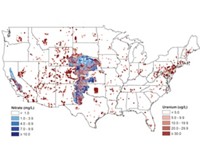Advertisement
Grab your lab coat. Let's get started
Welcome!
Welcome!
Create an account below to get 6 C&EN articles per month, receive newsletters and more - all free.
It seems this is your first time logging in online. Please enter the following information to continue.
As an ACS member you automatically get access to this site. All we need is few more details to create your reading experience.
Not you? Sign in with a different account.
Not you? Sign in with a different account.
ERROR 1
ERROR 1
ERROR 2
ERROR 2
ERROR 2
ERROR 2
ERROR 2
Password and Confirm password must match.
If you have an ACS member number, please enter it here so we can link this account to your membership. (optional)
ERROR 2
ACS values your privacy. By submitting your information, you are gaining access to C&EN and subscribing to our weekly newsletter. We use the information you provide to make your reading experience better, and we will never sell your data to third party members.
Environment
Radiation From Japan Is Not Harmful To U.S.
EPA director tells Congress that data from air and water samples show no basis for concern
by Glenn Hess
April 14, 2011
Very low levels of radioactive material linked to the crisis at Japan’s damaged Fukushima Daiichi nuclear power plant have reached the West Coast of the U.S. But analyses of air and water samples for radiation contamination show that America remains safe, EPA Administrator Lisa Jackson told the Senate Environment and Public Works Committee on Tuesday.
"Let me be clear, EPA has not seen and does not expect to see radiation in our air or water reaching harmful levels in the U.S.," Jackson said. "All of the data that we have seen, which we continue to make public and available on our website, indicates that while radiation levels are slightly elevated in some places, they are significantly below problematic levels."
EPA has 164 monitoring stations spread throughout the 50 states, and the agency measures radioactive substances in air, precipitation, drinking water, and milk. Recent air samples have contained very small amounts of iodine, cesium, and tellurium, which are consistent with possible releases from the damaged Japanese reactors, Jackson testified. The largest amounts were found in samples from Alaska on March 19 and 24, she said, but all of the radiation levels detected “are hundreds of times below levels of concern.”





Join the conversation
Contact the reporter
Submit a Letter to the Editor for publication
Engage with us on Twitter